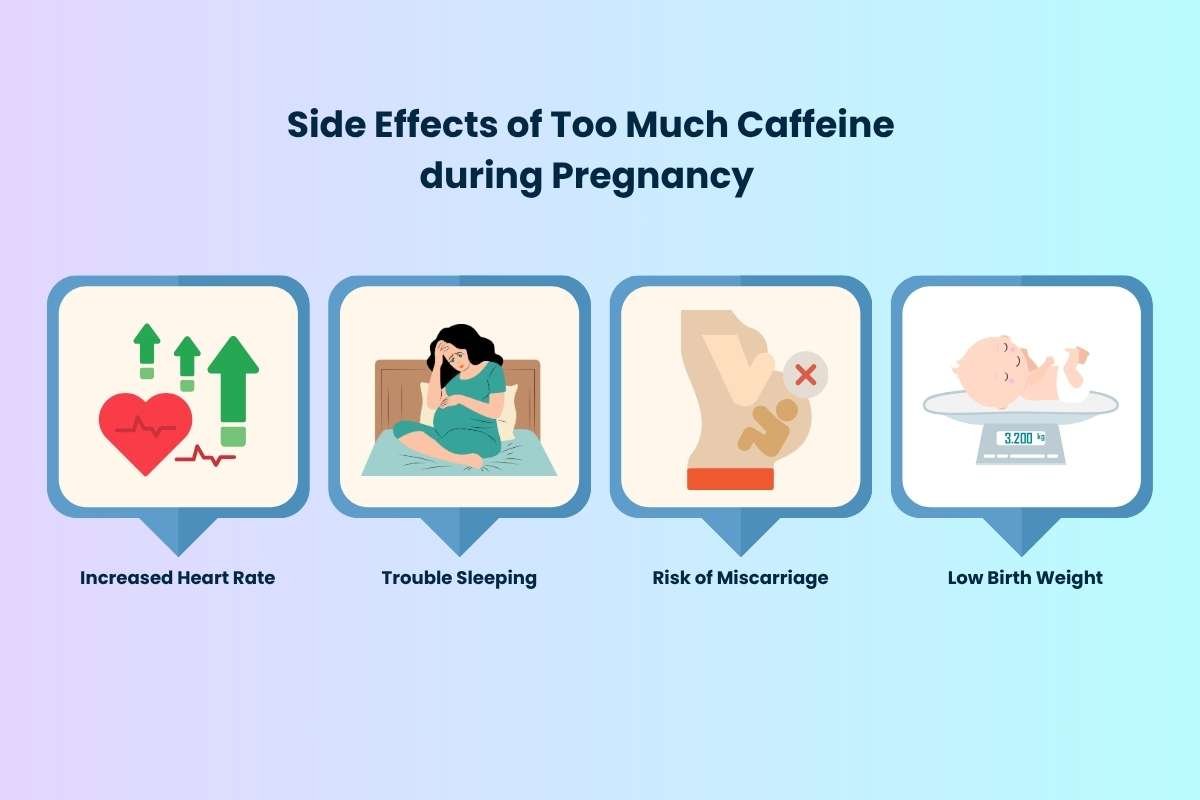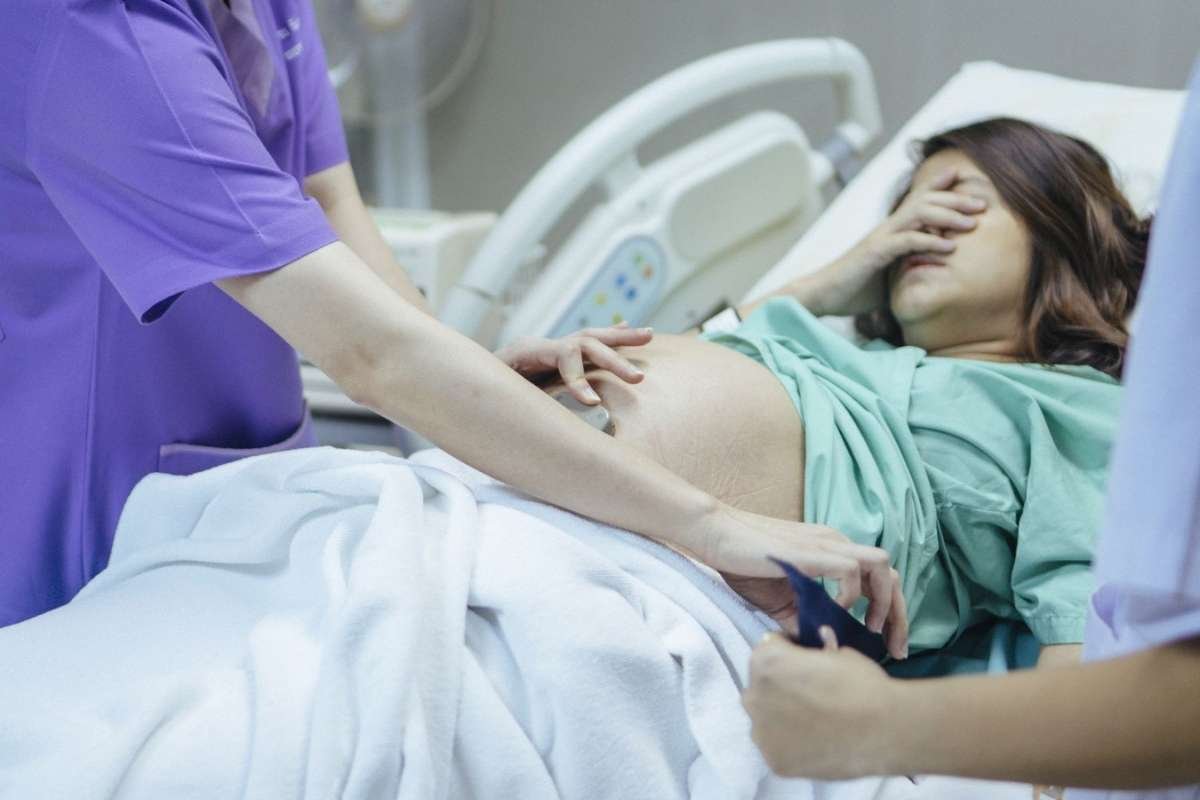Many pregnant women crave their morning coffee. However, pregnancy brings new concerns, especially about what is safe. A significant question is the daily intake during pregnancy.
Should you quit coffee cold turkey? Or can you enjoy it in moderation?
Pregnancy is a time of change, not just physically but in daily habits. Understanding how caffeine affects you and your baby is important. This guide breaks down the safe limits, side effects, surprising benefits, and practical tips for managing your daily caffeine intake during pregnancy.
What is Caffeine and is it Safe?
Caffeine is a natural stimulant found in coffee, tea, chocolate, sodas, and energy drinks. It affects the nervous system by blocking a chemical called adenosine, which helps you stay alert. During pregnancy, your body processes caffeine more slowly, which means it stays in your bloodstream longer.
According to the American College of Obstetricians and Gynecologists (ACOG), moderate caffeine, about 200 mg a day, is generally considered safe for pregnant women. That’s equal to one 12-ounce cup of coffee.
Safe Daily Caffeine Intake during Pregnancy
The safe limit for caffeine intake during pregnancy is 200 milligrams per day.
Here is what 200 mg looks like in common beverages:
| Beverage | Approx. Caffeine (mg) |
| 12 oz Brewed Coffee | 95 – 200 |
| 8 oz Green Tea | 30 – 50 |
| 12 oz Soda (Cola) | 35 – 45 |
| 1 oz Daek Chocolate | 12 |
| 8 oz Energy Drink | 80 – 150 + |
Keep in mind, caffeine hides in unexpected places, like chocolate bars, ice cream, and even headache medications.
Side Effects of Too Much Caffeine during Pregnancy
Exceeding the recommended daily caffeine intake during pregnancy can cause problems for both mother and baby. Some common side effects include:

- Increased Heart Rate: Caffeine is a stimulant. It can make your heart beat faster, raising blood pressure, something you don’t want during pregnancy.
- Trouble Sleeping: Caffeine can lead to insomnia. Sleep is already disrupted during pregnancy, and caffeine makes it worse.
- Risk of Miscarriage: A National Institutes of Health (NIH) study found that consuming more than 200 mg of caffeine daily may increase the risk of miscarriage.
- Low Birth Weight: According to the World Health Organization (WHO), high caffeine levels during pregnancy are linked to babies born underweight.
Pros and Cons of Daily Caffeine Intake during Pregnancy
Pros:
- Improved Alertness: A small cup of coffee may help fight fatigue, especially in the first trimester.
- Mood Boost: Light caffeine consumption can elevate mood without harming the baby if kept under the limit.
- Headache Relief: Caffeine is a common ingredient in some safe, over-the-counter headache medicines.
Cons:
- Reduced Iron Absorption: Caffeine may interfere with how your body absorbs iron.
- Increased Anxiety: Even small doses can raise anxiety levels in some people.
- Potential Birth Complications: Long-term overuse may lead to complications during delivery or fetal development issues.

The key is moderation. Following the recommended daily caffeine intake during pregnancy helps avoid these downsides.
How to Track Your Caffeine Intake?
It’s easy to lose count of how much caffeine you are consuming. Try these methods to track it:
- Keep a journal: Write down every beverage and its caffeine content.
- Use a mobile app: Apps like Ovia or BabyCenter track caffeine and other nutrients.
- Read labels: Always check drink labels, especially energy drinks and sodas.
- Consult your OB/GYN: If unsure, your doctor can provide personalized advice.
Sticking to a safe daily caffeine intake during pregnancy helps protect your growing baby.
Surprising Sources of Caffeine
You might think avoiding coffee is enough. But caffeine sneaks into more foods and drinks than you expect.
- Decaf coffee: Still contains up to 15 mg of caffeine per cup.
- Green tea: Healthier, but still adds 30-50 mg per cup.
- Iced tea: Commercial brands can have 70+ mg per bottle.
- Chocolate desserts: One piece of chocolate cake can contain 30+ mg.
Knowing these sources helps you stay within the safe daily caffeine intake during pregnancy.
Myths about Caffeine and Pregnancy
1. You Must Quit Cold Turkey
Not true. Most experts agree that small, controlled amounts of caffeine are safe during pregnancy.
2. Decaf is Completely Caffeine-Free
Wrong. It still contains small amounts that can add up.
3. Tea Is Always a Safer Option

Not necessarily. Some teas, especially black or matcha, can be high in caffeine.
Understanding these myths can help you make better choices about daily caffeine intake during pregnancy.
Scientific Studies and Facts
Here are a few research-backed facts:
- British Medical Journal (BMJ) published a study showing that even caffeine levels under 200 mg can slightly impact birth weight.
- A 2020 review in Nutrients found a correlation between caffeine and delayed fetal growth, even at moderate levels.
- European Food Safety Authority (EFSA) supports the 200 mg/day limit for pregnant women.
These sources back the claim that moderation is crucial for daily caffeine intake during pregnancy.
How to Cut Back Safely?
If you are trying to reduce your caffeine, don’t quit all at once. Sudden withdrawal can cause headaches and irritability.
Here’s how to cut down gradually:
- Switch to half-caf coffee: Mix regular and decaf.
- Replace soda with sparkling water: You will skip both sugar and caffeine.
- Choose herbal teas: Peppermint or ginger are pregnancy-safe options.
- Limit chocolate: Darker chocolate has more caffeine, so eat it less often.
Use these strategies to manage your daily caffeine intake during pregnancy without feeling deprived.
Similar Article:
- Is It Safe to Take Antibiotics While You Are Pregnant?
- Can Pregnant Woman Eat Banana? What You Need to Know
- How to Know if You Are Eating Enough During Pregnancy?
Alternatives to Caffeinated Beverages
Try these satisfying options:
- Warm lemon water: Soothing and hydrating.
- Golden milk: Made with turmeric and almond milk.
- Coconut water: Refreshing and full of electrolytes.
- Fruit-infused water: Keeps you hydrated and adds flavor.
These drinks support your pregnancy health while reducing your daily caffeine intake during pregnancy.
Conclusion
Pregnancy does not mean you must give up everything you enjoy. The goal is balance. Staying informed about daily caffeine intake during pregnancy helps protect your health and your baby’s growth.
Stick to under 200 mg daily. Read labels, track your drinks, and find satisfying alternatives when needed. If you ever feel unsure, talk to your doctor. Being cautious with your caffeine habit now sets the foundation for a healthier pregnancy journey.
1. Can I drink energy drinks while pregnant?
No. They exceed safe caffeine levels and contain harmful additives.
2. Is green tea safe during pregnancy?
In moderation, yes. Limit to one cup per day due to caffeine content.
3. What happens if I drink too much coffee accidentally?
One day of excess won’t usually cause harm, but monitor closely and consult your doctor.
4. Does caffeine affect breastfeeding?
Yes. Small amounts can pass into breast milk. Limit caffeine if you are nursing.







